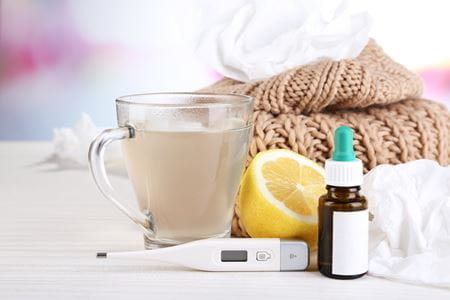Flu season is here, so it’s a good time to review information about the contagious respiratory illness and learn what steps you can take to protect yourself, your family and your community from the flu.
According to a February 2025 study published by the World Health Organization, there are around a billion cases of seasonal influenza (flu) annually, including 305 million cases of severe illness. As we approach the colder months when spikes in the flu tend to happen, now is the perfect time to adopt good hygiene practices such as washing your hands and protective behaviors like staying home if you are feeling sick.
Lana Dbeibo, MD, associate professor of clinical medicine at the Indiana University School of Medicine and medical director of infection prevention at IU Health Methodist Hospital in Indianapolis, explains other things people can do to prepare and protect themselves ahead of this flu season.
Question: As we head into flu season, why is it important to remind people about flu prevention?
Lana Dbeibo: This is the time of the year where cases may start showing up due to the seasonality of flu infections, and we need to be prepared ahead of time to prevent the spread.
Q: What’s the most effective way to protect yourself against the flu virus?
Dbeibo: The most effective way to protect yourself is to get a flu vaccine. Vaccines prepare our immune system to fight off the flu virus that's circulating that year. Typically, it takes two weeks for the flu vaccine to take full effect, and the protection lasts the whole flu season.
Q: What role does handwashing play in protecting against the flu, and are people doing it often enough?
Dbeibo: Hand hygiene is essential in preventing the transmission of many diseases in general including the flu. I hope that with the increased focus on hand hygiene in the past few years that people have a better sense of the importance of it in infectious diseases prevention.
A helpful guideline for effective handwashing is to ensure you scrub your hands for at least 20 seconds. A fun way to time this is by singing the "ABC" song or "Happy Birthday." When washing your hands, make sure that you pay close attention to the three commonly missed areas, which are the backs of your hands, your thumbs and under your nails.
Q: What other simple steps can people take to protect themselves and others during flu season?
Dbeibo: The flu is transmitted through droplets in the air so in addition to handwashing, respiratory etiquette is essential to help prevent the spread. Respiratory etiquette is the practices that can be done to prevent the spread of germs,such as covering coughs/sneezes, washing hands frequently, staying home when you are sick and cleaning frequently touched surfaces.
Another step you can take, if possible, is staying home while you are acutely ill. This helps prevent spreading the virus to others and also helps give yourself time to recover from your illness.
Q: What are some potential complications from the flu? Are there certain people who are more vulnerable than others?
Dbeibo: Flu complications can include bronchitis, pneumonia, hospitalization and death. Flu infects the upper respiratory tract and can infect the lungs, which will result in pneumonia.
According to the U.S. Centers for Disease Control and Prevention, populations at higher risk for developing complications from flu include:
- Adults 65 years and older
- Children younger than 2 years old
- Pregnant women
- People with certain chronic medical conditions including:
- People with asthma
- People with chronic lung disease, such as chronic obstructive pulmonary disease (COPD) and cystic fibrosis
- People with neurologic and neurodevelopment conditions
- People with blood disorders, such as sickle cell disease
- People with endocrine disorders, such as diabetes mellitus
- People with heart disease, such as congenital heart disease, congestive heart failure and coronary artery disease
- People with kidney disorders
- People with liver disorders
- People with metabolic disorders, such as inherited metabolic disorders and mitochondrial disorders
- People with a weakened immune system due to disease — such as people with HIV or AIDS, or some cancers such as leukemia or medications, such as those receiving chemotherapy or radiation treatment for cancer, or people with chronic conditions requiring chronic corticosteroids or other drugs that suppress the immune system
- People who have had a stroke
